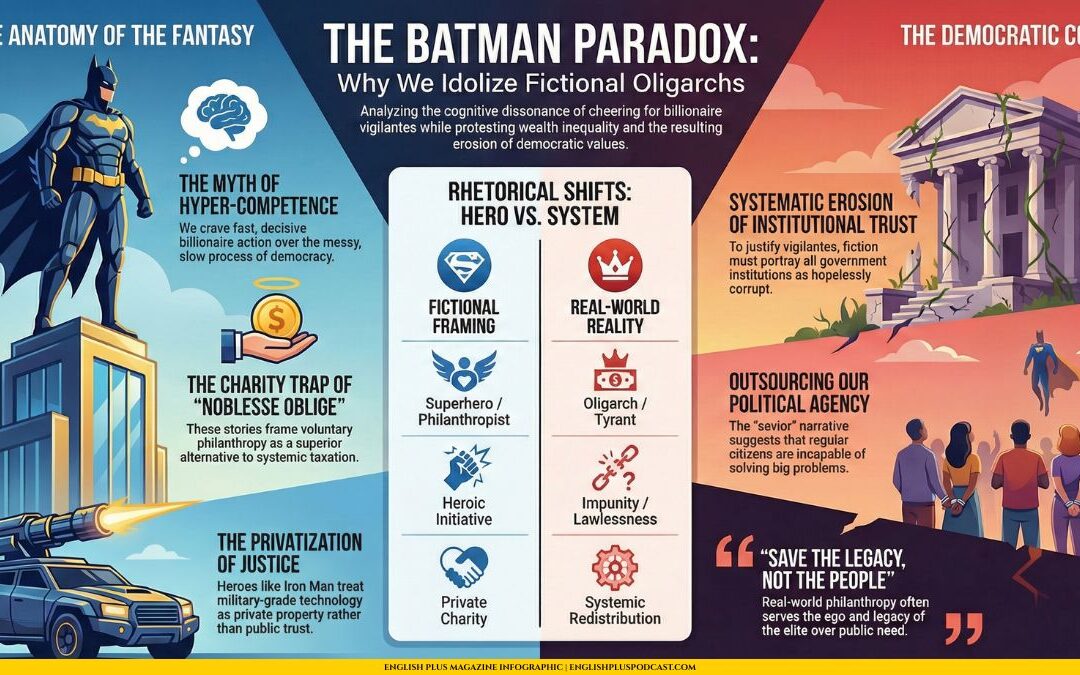The Gist
The Origins of Anansi
Anansi, often depicted as a spider or a man with spider-like features, is one of the most beloved figures in West African folklore, especially among the Akan people of Ghana. His tales have been passed down through generations, carrying both entertainment and life lessons. Anansi’s name comes from the Akan word for “spider,” reflecting his small but resourceful nature. Through these stories, Anansi embodies the idea that intelligence and wit can triumph over strength and adversity.
The Role of the Trickster
In folklore, tricksters are characters who use cunning and deception to outwit others, often challenging the status quo. Anansi is a master of manipulation—he doesn’t play by the rules, and that’s precisely what makes him so fascinating. Whether it’s stealing food, gaining power, or escaping trouble, Anansi always finds a way to come out on top, even if his actions are morally questionable. His stories invite listeners to think critically about justice, fairness, and the consequences of trickery.
Popular Anansi Stories
One of the most well-known stories is How Anansi Brought Stories to the World. In this tale, all the world’s stories were owned by Nyame, the sky god. Anansi, determined to bring these stories to the people, made a deal with Nyame—he would capture four dangerous creatures to earn the right to share the stories. Through clever traps and quick thinking, Anansi succeeded, spreading tales throughout the land and becoming a storyteller for the ages.
Another famous story is Anansi and the Pot of Wisdom. In this tale, Anansi tries to keep all the world’s wisdom for himself by hiding it in a pot. But as he climbs a tree with the pot tied to his chest, it keeps getting in the way. His son, watching from below, suggests he tie the pot to his back instead. Realizing that wisdom is not meant to be hoarded, Anansi drops the pot, scattering wisdom across the world for everyone to share.
Anansi’s Journey Across the Atlantic
Anansi’s stories didn’t stay in West Africa—they traveled with enslaved people across the Atlantic to the Caribbean and the Americas. In these new environments, Anansi’s tales evolved, becoming part of the folklore in places like Jamaica, where he became known as “Anancy.” His stories offered a sense of hope and resilience for people facing oppression, reminding them that wit and cleverness could overcome even the most difficult circumstances.
Today, Anansi’s stories continue to be told and retold, influencing literature, theater, and music. His character has become a symbol of survival and resistance, showing how cultural traditions can adapt and thrive even in the face of hardship.
Lessons from Anansi
Though Anansi often bends the rules, his stories carry important lessons. They remind us that intelligence can be just as powerful as physical strength and that creativity can solve even the trickiest problems. However, his tales also highlight the consequences of selfishness and deceit—Anansi doesn’t always get away with his tricks, and when he fails, it’s often because of his own arrogance.
At their core, Anansi’s stories encourage us to think outside the box, take risks, and find humor in life’s challenges. They remind us that even in difficult times, there’s always room for creativity and laughter.
The Legacy of Anansi
Anansi’s influence is still felt today, not only in African and Caribbean folklore but also in modern media. His stories have inspired books, plays, and animated series, making him a beloved figure for new generations. Through these adaptations, Anansi continues to teach valuable lessons about resilience, cleverness, and the importance of sharing stories.
The beauty of Anansi’s tales lies in their simplicity and depth. They entertain, challenge, and inspire, showing us that even the smallest, most unlikely heroes can make a difference. Anansi’s web stretches across cultures, reminding us of the power of storytelling to connect, uplift, and transform.
Final Thoughts
Anansi the Spider is more than just a character from folklore—he’s a reminder that life’s challenges are best faced with a little wit, a lot of creativity, and a sense of humor. His tales show us that storytelling is a powerful tool for sharing wisdom and that everyone, no matter how small, has a part to play in the world’s story. So, the next time life throws a tricky situation your way, think of Anansi and ask yourself—what clever solution might be hiding just beneath the surface?
Let’s Talk
So, how does a tiny spider like Anansi end up teaching some of life’s biggest lessons? That’s the magic of folklore—there’s always more beneath the surface, right? What really makes Anansi stand out to me is how he’s not perfect. He’s tricky, selfish, even a little arrogant at times, and yet he still wins our sympathy. Maybe it’s because we see a little bit of ourselves in him. Haven’t we all had moments where we tried to outsmart a situation, hoping no one would notice? And sometimes it works—but other times? Well, we end up tangled in our own web, just like Anansi does.
What’s interesting is how Anansi’s stories aren’t just about individual cleverness; they’re about survival, especially for communities that have faced oppression. When you think about how these tales made their way across the Atlantic with enslaved people, it really puts things into perspective. Anansi wasn’t just a clever character for them—he was a symbol of hope. Life was stacked against them, and they couldn’t rely on brute strength to overcome it. But Anansi’s tales reminded them that creativity, resilience, and wit could be just as powerful. It’s amazing how a simple spider could represent something so profound, isn’t it?
Have you ever noticed how sometimes, the smallest solutions turn out to be the smartest? That’s pure Anansi right there. It’s not always about having the biggest resources or being the strongest—it’s about how you use what you’ve got. Maybe you’ve had moments like that too. Like figuring out how to stretch your budget until the end of the month or coming up with a clever excuse to get out of an awkward situation. We’ve all been there, right? And sometimes it feels like a little bit of trickery—just like Anansi—but that’s okay. Life’s messy, and we do what we can to get by.
What also makes Anansi’s stories so relatable is the balance between winning and failing. He doesn’t always succeed. Sometimes his schemes backfire, and when they do, it’s because he gets too greedy or overconfident. Isn’t that a lesson we all learn at some point? We’ve all had those moments when we thought we had everything under control, only to realize we bit off more than we could chew. It’s humbling, but it’s also part of learning. Anansi shows us that failure isn’t the end—it’s just another step in the journey.
I think the idea of wisdom being scattered for everyone to share, like in the story of the pot of wisdom, is another powerful takeaway. No one person has all the answers—not even Anansi. Sometimes the best solutions come from listening to others or accepting help, even when it’s from an unexpected source. Isn’t it funny how the most valuable advice can come from the least likely person, just like how Anansi’s son gives him the idea to carry the pot differently?
And maybe that’s one of the biggest lessons from Anansi—wisdom isn’t about hoarding knowledge for yourself. It’s about sharing it, passing it along, and realizing that everyone has something to contribute. So, what’s a piece of wisdom you’ve learned the hard way? Or a situation where being clever got you out of trouble? Anansi’s stories remind us that life is full of tricky moments, but with a little wit—and maybe just a bit of humor—we can always find a way through.
Let’s Learn Vocabulary in Context
Let’s explore some of the key words and phrases from the story of Anansi and how we can use them in real life. These aren’t just words tied to folklore—they pop up in everyday conversations too, often when we least expect them.
First, let’s talk about trickster. A trickster is someone who bends the rules, relying on wit rather than brute strength to get what they want. You don’t have to be a spider to use this word—it’s perfect for those playful moments when someone pulls a harmless prank. “He’s the office trickster, always hiding people’s staplers.”
Cunning is another great word. It refers to someone being clever in a sneaky way, often to achieve a goal. It’s not always negative—it can also describe resourcefulness. “She used her cunning to negotiate a better deal.”
Then there’s outwit, which means to outsmart someone. You might use it when you find a creative way to solve a problem. “We managed to outwit the traffic by taking the back roads.”
Survival is more than just staying alive—it’s about making it through difficult situations, just like Anansi’s tales helped people cope with hardship. “Moving to a new city was tough, but it became a story of survival.”
Resilience comes up often when we talk about overcoming obstacles. It’s the ability to bounce back from challenges. “His resilience after losing his job was inspiring—he started his own business and never looked back.”
The word lesson is tied to something you learn, often from experience. Anansi’s stories are full of lessons, and life tends to be the same. “That argument taught me a valuable lesson about patience.”
We also explored wisdom, which is more than just knowledge—it’s insight gained over time. “Her wisdom always shines through when you need advice.”
Greedy shows up in several of Anansi’s stories, reminding us that wanting too much can backfire. You might hear it when someone takes more than their fair share. “Don’t be greedy with the snacks—save some for the rest of us.”
Scheme refers to a plan, often one that’s a bit sneaky. It can describe anything from elaborate strategies to playful tricks. “He’s always coming up with some scheme to avoid doing chores.”
Finally, contribute is about giving something valuable to a group or project. Anansi’s son contributed the idea that helped his father carry the pot of wisdom, showing how everyone can add something. “We all need to contribute to make this project a success.”
Here are two questions to ponder: When have you had to use a bit of cunning to solve a tricky situation? And what’s a lesson you’ve learned that you now consider part of your personal wisdom?










0 Comments